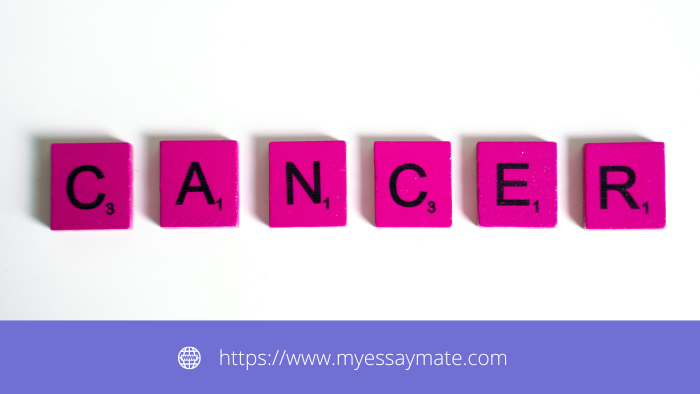
Anyone willing to understand how diseases develop in human skin needs to learn in-depth about the subject, and there cannot be a better way than nursing assignment help. With the mentorship of nursing experts, you can complete all your assignments without worrying about deadlines and authenticity. So, let's learn more about skin cancer, its causes, symptoms and treatment. Let's begin!
National Skin Cancer Action Week, which takes place every November, aims to raise awareness of the need for Australians to protect themselves from the sun's harmful rays, which can result in skin cancer. Together, the Cancer Council and the Australasian College of Dermatologists offer helpful tips on how to enjoy the sun safely and shield yourself from harmful UV radiation. The week can help people recognise some of the early indicators of skin cancer and act as a reminder of the value of early detection.
The first Europeans with fair skin arrived in Australia more than 200 years ago, in 1788, and brought a history of skin cancer.
The risk is higher in men than in women (70% vs. 58% prevalence rate of NMSC before age 70 1; 58.5 vs. 39.0 age-standardised incidence rate of melanoma). At least 2 in 3 Australians will receive a skin cancer diagnosis before the age of 70.1. Men also have a higher mortality risk; 69% of Australians who pass away from skin cancer are male.
The leading cause of skin polyphenols and colorectal cancer assessment answer sample is overexposure to sunlight, especially when it results in blistering and sunburn. Ultraviolet (UV) rays from the sun damage DNA in your skin, causing abnormal cells to form. These abnormal cells rapidly divide disorganised, forming a mass of cancer cells.
Another cause of skin cancer is frequent skin contact with certain chemicals, such as tar and coal.
Mainly a change of skin is a sign of skin cancer. It could be a new growth, a sore that lasts longer than expected, or a rapid change in a mole external to the skin. However, not all skin cancers look the same. Therefore, we have categorised as a simple way to remember– A-B-C-D-Es of melanoma that follows-
In addition to UV radiation exposure, typical risk factors for skin cancer include:
In Australia, much of the population is at risk of developing skin cancer due to having mainly fair skin and high levels of UV radiation year-round. However, skin cancer is categorised into multiple segments such as average, increased and high risks- according To the Royal Australian College of general practitioners.
You are at increased risk of developing skin cancer if you have the following:
Here are the risk factors for developing skin cancer if you have:
Skin cancers of common types include:
For any age group, it is essential to practise sun protection activities such as using sunscreen and wearing clothes to protect their skin from the sun. Every expert in nursing assignment help says that following such safety measures from a young age is especially important as a part of the morning routine in Australia. For example, using sunscreen, everything you step out in the daylight has more successful preventive traits, which helps in reducing the risk of skin cancer up to a significant number.
Per medical experts, prevention is the best approach to avoiding all kinds of skin cancer. However, there are health authorities and groups who recommend five steps to protect your skin from those harmful UV rays:
These are the basic practices you can follow as your routine every day. These are safe habits you should learn and educate people around you.
Early detection. It is critical to your skin, and regularly check it so that you find out what is changing sooner than later. You can notice if there are any moles or lesions. In Australia, the Australian Skin Cancer College offers an online tool to help gauge the risk of skin cancer.
Melanoma is a severe type of skin cancer that can progress quickly. Hence, it is essential to ensure you regularly check any new or changing moles with the help of doctors.
A considerable number of cases of skin cancer can be treated by dermatologists or with surgery. However, speedy treatment is required if a dermatologist determines that the skin cancer is melanoma (which is dangerous) or Markel cell carcinoma.
The most standard treatment possibilities for skin cancer have the following:
Here is a list of different types of treatment for basal cell, carcinoma, squamous cell carcinoma and actinic keratosis skin cancer:
types of standard treatment are used:
and other types of medication therapy
Surgical procedures for skin cancer include:
Excision: Types of excisions include:
Learning about skin cancer is not a cakewalk for millions of nursing students worldwide. In most cases, the work is so hectic that you feel exhausted with the workload, and on top of it, you need more time to perform all the tasks alone. So, what cure do you have for this stress? Thankfully, Online Assignment Expert is the apt answer to all your assignment-related questions. We are a fully-fledged team of subject matter experts who are enthusiasts of nursing courses. Our instant assignment help policy helps people to avail of some fantastic services such as:
No matter what topics you have got and what subject you are into, there is always a highly qualified mentor for you who is talented enough to guide you to write a 100% plagiarism-free Nursing Assignment Help with excellent research. So, connect with Online Assignment Expert and let us lower the assignment stress immediately!
Get
500 Words Free
on your assignment today